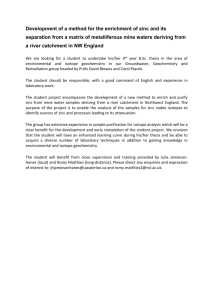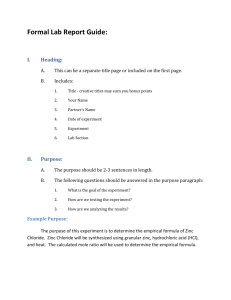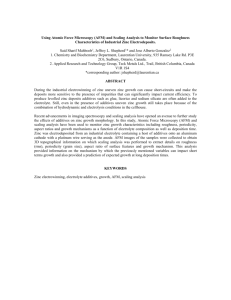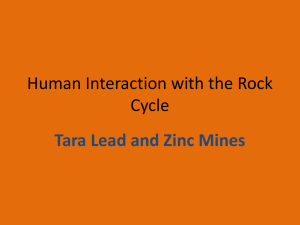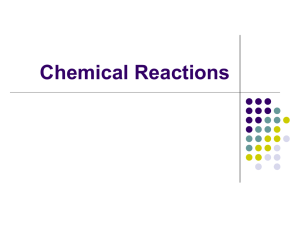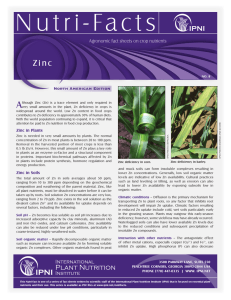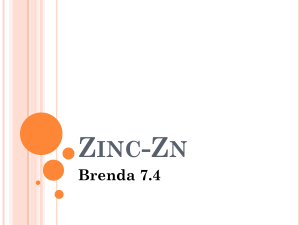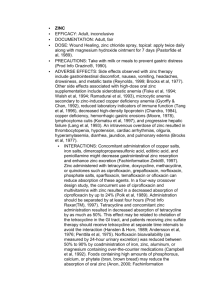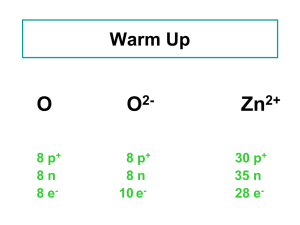The importance of maternal zinc supplementation to reduce adverse
advertisement
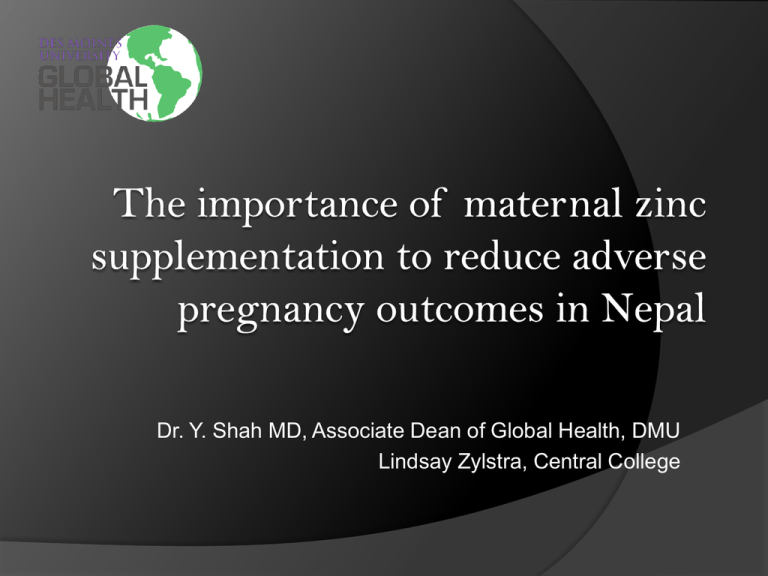
Dr. Y. Shah MD, Associate Dean of Global Health, DMU Lindsay Zylstra, Central College Introduction Maternal zinc deficiency has been associated with adverse fetal outcome Estimated over 80% of all pregnant women worldwide and 61% of women in their first trimester are likely to suffer from zinc deficiency Introduction Recent data has shown that maternal zinc supplements may improve the neonatal immune status, reduce infant morbidity from infectious disease, as well as prevent congenital malformations Nepali diet is vegetarian-like and cereal based High in phytate which inhibits zinc absorption ○ Rice, Nepal’s main source of food, is extremely high in phytate and does contain zinc, but the phytate inhibits zinc absorption Methods & Analysis Literature research conducted in MEDLINE, CINAHL, and PubMed Purpose to assess if supplementation of zinc during pregnancy can improve infancy growth and developmental parameters, especially in developing countries such as Nepal Literature suggests a beneficial effect of maternal zinc supplement on the neonatal immune system and preventing infectious disease Relationship between mother plasma zinc (Zn) and newborn length in the supplemented group European Journal of Clinical Nutrition (4) Conclusion Legume, seeds, nuts and whole wheat cereal decreasing the amount of food that contains a high amount of phytate would improve deficiency Nutrition transition must be a key factor For less than 13 cents a day (U.S. retail price) a daily zinc supplement can be provided to a pregnant Nepalese woman, which can lower the risk of progeny adverse effects Conclusion Research has shown that a fetus suffering from zinc deficiency can develop abnormalities in the central nervous system (5), but analyses indicate that more specific research needs to be conducted because the current data is not conclusive Studies conclude that maternal zinc deficiency can cause preterm birth (low birth weight), adverse neurobehavioral development, depleted immune system, and congenital malformations 12mg/day zinc supplement References 1. Jiang T. et al. Micronutrient deficiencies in early pregnancy are Common, concurrent, and vary by season among rural Nepali pregnant women. J Nutr2005; 5:1106. 2. Christian, P. (2003). Micronutrients and reproductive health issues: An international perspective. The Journal of Nutrition, 133(6), 1969S-1973S 3. Zinc deficiency in pregnancy and fetal outcome. (2006). Nutrition Reviews, 64(1), 15-30. 4. Hiniger, I. et al. Effects of a combined micronutrient supplementation on maternal biological status and newborn anthropometrics measurements 5. Osrin, D. et al. (2005). Effects of antenatal multiple micronutrient supplementation on birthweight and gestational duration in Nepal.: Double-blind, randomized controlled trail. Lancet, 365(9463), 955962.

